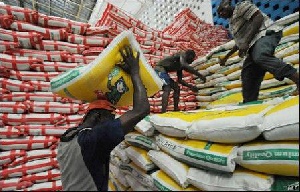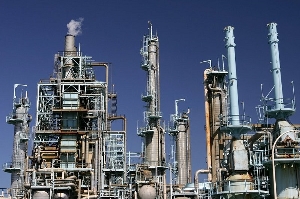Commodity value chain actors, who are expected to play key roles in activities of the yet to be established National Commodity Exchange (GCX) are rallying support for the GCX to work and help alleviate poverty -- transforming the agricultural value chain in the country while creating wealth for all, especially smallholder farmers.
According to the commodity value chain actors who form the GCX Market Council, there is need for all stakeholders to come together and fight for the rights of local farmers whose activities are bedevilled by a number of obstacles; such as lack of access to ready market and finance.
These views came to the fore at the second Market Council meeting organised by the GCX Project on January 28, 2016 in Accra to share updates on the progress of work on establishing the National Commodity Exchange.
The Market Council (MC) comprises various representatives of the commodity market -- from producers to traders/wholesalers, aggregators, processors and others -- put together with the intention of soliciting feedback at bi-monthly consultations on the Project various outputs for its duration.
The aim of the consultative sessions with the Market Council is to enable the GCX Project Secretariat, in its Design and Implementation phase, to continuously engage with various stakeholders so as to ensure relevance and feasibility of the Design, to embark on sensitisation and preliminary capacity building, and to build a sense of joint ownership and engagement with the GCX Project.
At the second Market Council session, members were briefed on how trading will be conducted on the Exchange. They were also updated on how clearing and settlement processes will be executed, and key benchmarks that will be in place to ensure quality standards are always strictly adhered to.
Sharing their feedback, Market Council members advocated introducting the concept of source validation to check the influx of imported commodities from being traded on the National Commodity Exchange (GCX) trading floor to protect local producers, especially smallholder farmers.
In their view, this will go a long way to address the challenge of imported goods being trafficked into the country due to artificial shortages; and stressed the need for incentives to protect local trader interest. They also reiterated their commitment to partnering the GCX in intensifying market surveillance to proactively address any risk factors that could frustrate the process of creating a platform that respond to needs of all market actors.
Earlier, in his opening remarks, the Acting GCX Project Director Mr. Robert Dowuona Owoo commended Market Council members for the level of commitment so far demonstrated toward establishing the first Commodity Exchange of its kind in West Africa.
The GCX Project is tasked with seeing to the creation of an orderly organised path that will enhance market efficiency, transparency and integrity through the dissemination of market information in real-time to all market players.
It is being financed with equity investment by the government of Ghana, under the sponsorship of the Ministry of Trade and Industry and a private sector financing consortium made up of domestic and global institutional investors.
It is a Public-Private Partnership (PPP) initiative aimed at transforming Ghana’s agricultural sector by establishing the first modern commodity exchange in the country, and was launched in June 2015 by President John Mahama.
Business News of Thursday, 18 February 2016
Source: B&FT Online













